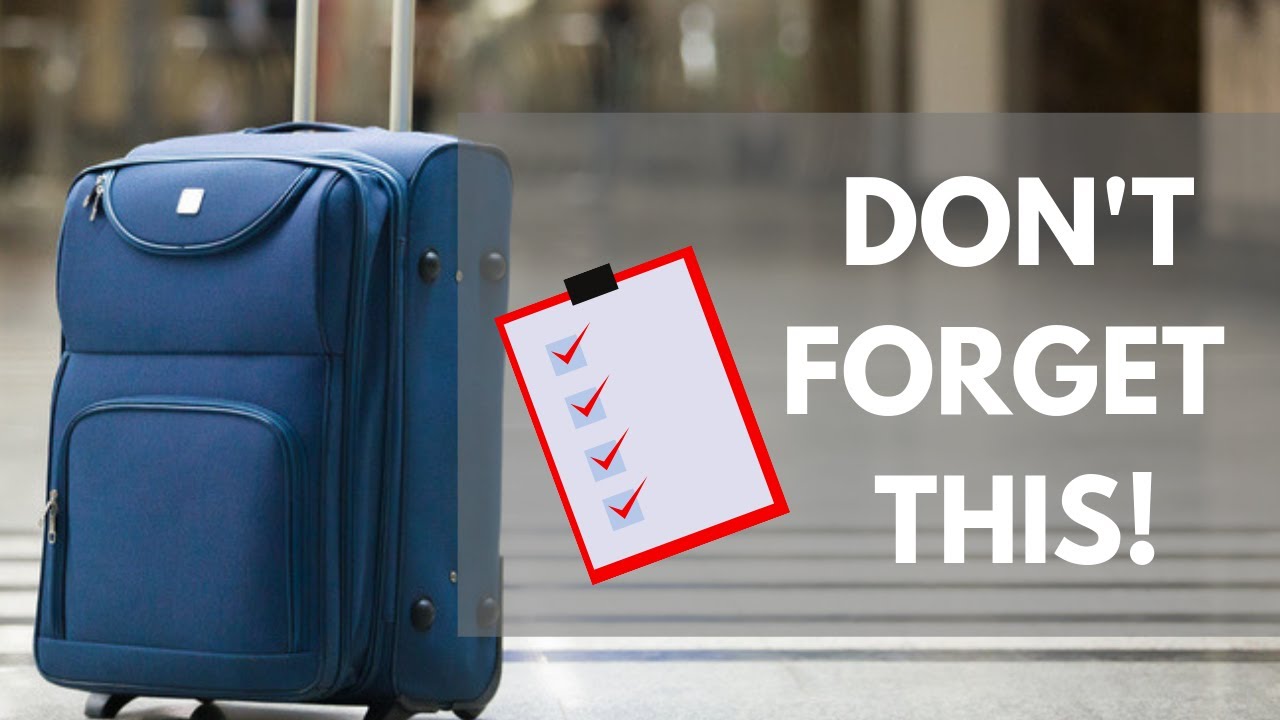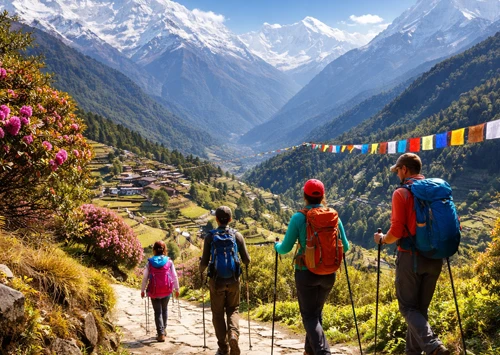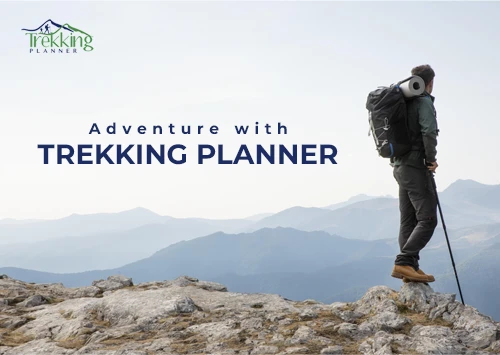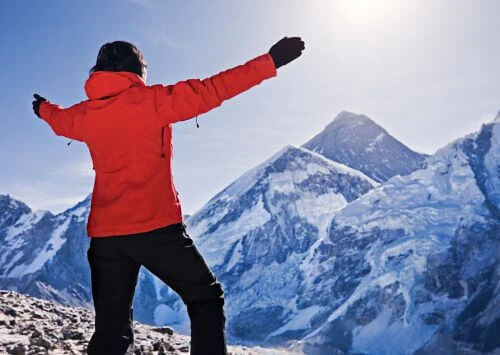Eight Things All First-Time Travelers Forget.
It might still happen despite the amount of time you’ve put into selecting a suitcase and finally fitting everything inside it. You’ve left your home, you’re in a taxi or on a plane, and suddenly, whoops. Forgetting stuff that you really need isn’t uncommon, and at times, it can be a real headache. While your tickets, travel documents, money, and medication are essentials, here we have listed ten other items we often forget to pack—and always regret not having in our suitcases. 
Accessories Charger.
We always charge our phones, tablets, and cameras to the brim before heading out on a trip—wise, right? But so often, we forget to pull out the charger and put it inside the bag after we’re done charging our devices. Also, don’t forget to pack an adapter, as the charging port might be different from what you need.
Tooth Brush.
This one is a classic. Sometimes, people purportedly don’t pack toothbrushes as they’re readily available, and some hotels even provide them. But often, getting your hands on a fresh, new toothbrush in the morning gets more challenging than you imagine. The same goes for other bathroom essentials like razors, shampoo, and hair brushes.
Headphones.
I don’t think I need to justify the dire importance of headphones, especially during long travels. They can readily be your perfect escape when you need to make a trip more tolerable or ignore people for a while. Imagine spending hours customizing your perfect travel playlist and forgetting to bring your headphones. Sigh!
Sleep mask or earplugs.
It becomes hard to enjoy a trip if you haven’t had a good rest at night or if you are a light sleeper. If light and noise tend to disrupt your slumber, make a point to bring sleep masks or earplugs to spare you some sleep. They will come in incredibly handy during long drives and flights.
Jet lag meets paper-thin hostel walls. Street noise, snoring, dogs, and neon lights blinking through the window. You won’t sleep. And sleep matters. You might not use them every night, but when you do, you’ll be glad you packed them. Sleep is your best friend when you’re adjusting to new time zones, food, and altitude.
What to do: Earplugs. Eye mask. They’re cheap, take up no space, and can turn a sleepless night into decent rest—whether you're in a Kathmandu guesthouse or on a 12-hour bus ride.
Emergency snacks.
It is tempting to not pack any food when there are eateries in every nook and cranny, but, there are several probable instances when emergency snacks will come handy. Imagine arriving late at a hotel sans room service or getting stuck in a country station with only live pigeons for protein source.
Sun Protection.
It is always nice to bask in the sun and get your vitamin D intake. However, the sun is trickier than you might think. Underrated as it is, sun protection is indispensable. Do not forget to pack sun-protection clothing, sunscreen, and sunglasses unless you want to flaunt sunburns as a testimonial of your vacation.
Insect Repellent.
At the time of writing this blog, no treatment for malaria had been developed yet. Crazy, right? Anyway, prevention is always better than cure. Make sure to pack insect repellent when outdoors to ward off various insect-borne allergies and diseases.
First aid supplies.
You will get blisters, scratches, and scrapes. Unless you want to overpay for a pack of bandages, don’t forgot to throw a few in bag while packing. Also, it is not exactly convenient to hobble your way into a medical store post-injury, right? The wise thing to do is make yourself a first aid kit with essentials and pack it with toiletries.
Getting sick while traveling isn’t just a hassle. It can throw off your entire trip. And if you’re heading somewhere like the mountains of Nepal, you might not have easy access to a pharmacy. That’s why packing your own basic meds and first aid supplies isn’t just smart—it’s essential.
What to do: You must bring a small, well-stocked kit with over-the-counter meds you know work for you. You should think about pain relievers, something for stomach issues (especially traveler’s diarrhea), allergy medications, and other medications you need regularly. As you are going to a high altitude, you will need altitude sickness pills like Diamox.
Here are a few first aid essentials most people forget but are incredibly useful:
- Pain relievers (like ibuprofen or paracetamol)
- Anti-diarrheal medication
- Antihistamines for allergies
- Motion sickness tablets
- Altitude sickness pills (e.g., Diamox)
- Blister plasters and regular band-aids
- Antiseptic cream or wipes
- Tweezers and small scissors
- Hydration salts or electrolyte packets
- Insect repellent (especially in warmer regions)
- Sunscreen and lip balm with SPF
- A few safety pins and a roll of medical tape
Extra Common Things First-Time Travelers Should Be Aware Of
Copies of Your Important Documents
Lost luggage. Dead phone. A missed flight. All real, all possible. And without copies of your documents, things get messy fast.
What to do: Print your passport, visa, travel insurance, and bookings. Keep them separate from your originals. Also, upload them to your cloud storage like Google Drive or Dropbox. So you can access them whenever you need them.
Pro tip: write down your embassy's contact info and save it somewhere offline. If something goes wrong, you’ll want a lifeline that doesn’t depend on Wi-Fi.
Local Currency
Your card works fine at home, so why wouldn’t it work abroad? Because in rural or remote places, like Nepal’s trekking villages, cash rules. And shops often can’t break big bills.
What to do: Hit the ATM when you arrive in the city and grab small denominations. Keep some tucked away for emergencies or places that don’t accept cards. You must avoid relying on currency exchanges at airports. They often charge steep rates. Suppose you are traveling to multiple countries. Sort your cash in labeled envelopes so you're not fumbling in line.
Toilet Paper and Hand Sanitizer
You’re in a public bathroom and realize there’s no toilet paper. No soap either. That’s not rare—it’s normal in many parts of the world. Also smart: pack a small dry bag or ziplock to stash used tissue until you can dispose of it properly. Some remote areas don’t have trash bins, and you don’t want to litter.
What to do: Pack travel-size tissue packs and hand sanitizer. You’ll use them more than you think, especially if you're in the mountains or at roadside stops.
A Headlamp or Flashlight
You might laugh now, but when the power goes out or you’re navigating a trail before sunrise, your phone light won’t cut it. Bonus points if it has a red light setting—it’s softer on the eyes and doesn’t blind your bunkmates. Also, toss in a spare battery or two. They’re light, and you’ll be glad to have them.
What to do: Bring a lightweight headlamp. It's hands-free and a total game-changer in dark dorm rooms, teahouse trails, or early-morning hikes.
Offline Maps and Paper Backups
Wi-Fi isn’t everywhere. Your phone battery won’t last forever. And apps can crash. Apps like Maps.me and Google Maps let you save entire areas offline. Make sure your accommodations, key transit points, and emergency contacts are easy to find—even without signal.
What to do: Download offline maps of your destination ahead of time. Print your itinerary and key contact details. Paper doesn’t glitch or die on you.
Quick Checklist for First-Time Travelers
- Universal adapter + power bank
- Passport + document copies (printed + digital)
- Local currency (small bills)
- Medications + altitude pills if needed
- Earplugs + eye mask
- Toilet paper + hand sanitizer
- Headlamp
- Offline maps + printed itinerary
- Reusable water bottle
- Snacks (bars, nuts, dried fruit)
Also, Learn about Nepal Trekking Info
If You are wondering about Nepal Tours and Trips, Explore Page "Nepal Trekking" for Top Trails and Scenic Routes!
Contact UsNow!
FAQ’s
What do most first-time travelers forget to pack?
Most people forget practical basics like a power adapter, medication, or printed copies of important documents. They often remember the big stuff, like clothes, but miss the small essentials that actually save the day on the road.
Is it really necessary to carry printed travel documents?
Yes, it’s a lifesaver when your phone dies or you lose internet access. Having printed copies of your passport, bookings, and itinerary gives you a backup plan you can actually hold in your hand.
How much local cash should I carry?
Enough to get you through a few days without relying on your card—especially if you're heading somewhere remote. Think small bills for taxis, meals, and emergency expenses, and avoid carrying large denominations.
Can I buy travel meds abroad if I forget them?
Sometimes, but not always. Availability and quality vary a lot, especially in smaller towns or developing countries. It's best to bring what you know and trust, including anything prescription or country-specific, like altitude sickness meds.
Do I really need offline maps if I have mobile data?
Absolutely. Signal can drop, especially in remote or mountainous areas, and roaming charges can surprise you. Offline maps make sure you never feel lost, even when your phone can’t connect.






